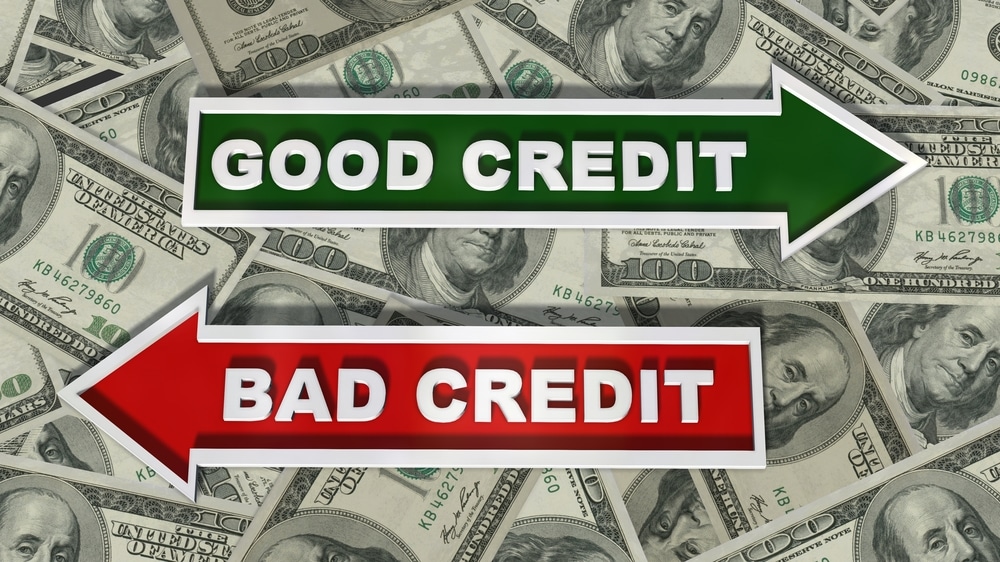Navigating the world of South Carolina contractor license or residential builder bond requirements can be complex. Are you prepared to ensure compliance and protect your business?
We’ve got you covered in this comprehensive guide that will provide you with the knowledge and resources necessary to understand the ins and outs of South Carolina contractor licenses or residential builder bonds.
Short Summary
-
Contractors and residential builders in South Carolina must obtain a contractor license bond through the LLR.
-
The cost of surety bonds is determined by the amount, the applicant’s credit score, and prevailing market rates.
-
Bad credit can lead to higher premiums. Strategies for improvement include timely payments, reducing debt, limiting new debt taken on & regularly reviewing reports.
Understanding South Carolina Contractor License and Residential Builder Bond Requirements
Contractors and residential builders in South Carolina must obtain a surety bond called the Carolina Contractor License surety bond required.
This type of surety agreement binds the contractor, state, and issuing company – ensuring compliance with all laws by protecting affected parties from non-conformity losses.
The amount for this certain bonding process is determined by LLR (South Carolina Department of Labor Licensing & Regulation).
At the same time, a licensed group other types may also be needed based on what project or trade one engages in. So, they should consult their local licensing authority as local licensing requirements can vary per job/location.
Types of Surety Bonds Required
In South Carolina, general and mechanical contractors must obtain surety bonds to be licensed. These bond amounts act as financial security for customers and the state government, guaranteeing that contractors will adhere to regulations while meeting their commitments.
This table shows some of the common bonds and their amounts:
| Type of Bond | Bond Amount |
|---|---|
| SC Residential Builders Bond | $50K |
| SC General Contractor Bond | $20K, $80K, $200K, $350K or $500K |
| SC Mechanical Contractor Bond | $7K, $20K, $40K, $80K or $400K |
| Specialty Contractor Bond | $10K |
Amounts range from $7000 – $500 000, depending on the type of building permit, of the license type or specialty contractor status held by a contractor. Residential builders have varying set rates at either $5000, 10000 or 15000 according to bond requirements established by SC authorities.
Licensing Authorities and Regulations
The South Carolina Department of Labor, Licensing and Regulation (LLR) is in charge of controlling different trades and businesses such as general contractors, residential builders, along with specialty general contractor and specialty contractors. As a precondition for being granted the license to operate any business related activity like these mentioned before. Applicants must acquire a bond from LLR who will guarantee that state regulations are complied with by them.
If either contractor or home builder fails to uphold their contract pertaining to the said bond agreement then they could be facing severe penalties – including suspension/revocation of their particular specialist contractor’s license issued by LLR.
Cost Factors for South Carolina Contractor License Bonds

In South Carolina, the price of a contractor’s licensing board and license bond is determined by various financial components, including both the required bond amount set forth in applicable contractor’s licensing board regulations and an applicant’s personal credit rating. Prevailing market rates range between 1% to 3%.
The elements that determine pricing include the mandatory bonds’ total value mandated for said licenses as well as one’s individual credit score and current industry-standard fees. Taking these items into consideration can aid contractors in budgeting costs associated with obtaining their contractor license and bonding process.
Credit Score Impact
A contractor’s credit score is a determining factor for the cost of their contractor license bond and other surety bond amount.
If an applicant has good credit, they can expect to receive more competitive rates than those with lower scores, due to being seen as a higher risk by other surety bond companies.
Improving one’s financial standing becomes key in securing attractive premiums on their contractor license bonds and decreasing its overall price tag.
Other Financial Considerations
For South Carolina contractors and residential builders, having a good credit score is not the only factor that influences the cost of their contractor license bonds.
Financial stability and business background can also be taken into account when determining contractor license bond cost rates, these two factors are key in helping reduce overall costs for acquiring a valid contractor license bond.
It pays to review financial records thoroughly as well as evaluating past business successes before applying for this type of license requirement. Doing so may aid them in obtaining better terms with regards to license bonding rates.
Obtaining a South Carolina Contractor License or Residential Builder Bond

Once you are familiar with the bond requirements and associated costs, the next step is to acquire a South Carolina general contractor bond, a license or residential builder’s bonding.
This involves filing for an online application form, having your bonds examined and paid up yearly upon renewal as well as keeping track of maintenance dues.
We have made it our mission to guide people through each component of this process so they can obtain their contractor licenses or house-builder bonds stress-free in South Carolina!
Online Application Process
In South Carolina, following the proper steps when seeking a contractor bond or surety bond from mechanical contractor is essential.
Step one: Search for the the license needed and get docs from the state board.
Step two: fill out the online contractor bond application form.
Step three: Pay Premium Online
Step four: Docusign the agreement and Bond
Step five: Download and Print your new Bond, all done in about 5 minutes.
The bonding insurance company requires accurate credit and financial information to calculate rates. You must include proof of identity as a residential specialty contractor as well as financial capability.
Annual Renewal and Maintenance

It is vital to renew your general and mechanical contractor name or license bond every year in order to keep it current. Both general contractors and mechanical contractors must re-register by June 30 of each even numbered year, paying a fee for a full two-year licensing period.
Residential builder licenses can be updated online as well. Making sure the bond stays up-to-date will help you maintain proper license status and increase credibility within this field.
Protection Offered by Contractor License Bonds

Contractor license bonds are extremely useful for all parties involved, as they guarantee compliance with state regulations and the terms of a contract. In case there is any financial harm caused due to contractor’s behavior or actions, customers may use the contractors license bond, to seek compensation from losses incurred.
In this article we will go through areas protected by such bonds – ranging from making sure that contractors follow laws set forth in their licenses up until providing both clients and states with needed economic protection measures against potential risks associated with hire services rendered by mechanical contractor to said party.
Compliance with State Laws and Contract Conditions
The main objective of a contractor license bond, as well as the related bonds, is to guarantee that all contractors who hold license are complying with state regulations and meeting all requirements.
This a bonded and residential specialty contractor license, demonstrates their dedication to following these standards, which will benefit both licensed contractors, their customers and the governing body.
By obtaining this type of surety bond for contracting work in particular areas such as construction contracts, trust can be fostered between the responsible parties involved. Affirming they’ll carry out what’s been agreed upon under said surety or construction contract stipulations.
Financial Protection for Customers and the State
Contractor license bonds are an essential component of ensuring licensed contractors comply with both state and local laws, and contract requirements, while also providing financial protection to customers and the state.
Should a licensed contractor ever fail in their obligations or cause harm to someone they have contracted for services, this bond serves as insurance, allowing victims of such actions to make a claim against the bond should it be necessary.
The protective nature offered by these licenses is crucial. It ensures that individuals can’t suffer financially due to any misconduct from those hired under agreement.
Handling Claims Against Your Contractor License Bond

Understanding the process of dealing with claims against one’s total bond and contractor license bond is a difficult challenge. Knowing common reasons why these bonds are claimed and its implications along with preventive measures will help anyone handle it well.
In this article, we provide information on addressing such issues concerning your contractor license or licensee bond and ensuring that your reputation remains un-compromised in the industry. We look into causes for claiming, consequences involved as well as means for avoiding them so you can best manage any situation related to contracts granted under this type of bonding arrangement.
Common Causes of Bond Claims
Bond claims often arise from negligence, poor planning and supervision, or breach of a bond agreement’s terms. Contractors may face financial difficulties that lead to them not being able to fulfill their obligations as stated in the contract.
To avoid such scenarios where contractors might be subject to penalties due to bond claim disputes occurring because of these issues, it is important for contractors to recognize potential risks beforehand by taking appropriate measures and safeguarding their reputation in the industry.
Consequences of Bond Claims
Contractors should be aware of the risks involved with bond claims, as they can bring considerable monetary losses and legal costs. To harm one’s professional reputation. Failure to abide by the terms of their agreement could lead to a suspension or revocation of license.
It is essential for contractors to take steps towards avoiding such outcomes. Doing things like getting proper insurance coverage, having an understanding of all aspects stated within your bonding document will help protect both business interests and repute.
Tips for Avoiding Bond Claims
For contractors to avoid bond claims, it is important that they abide by state and local laws, and contracts terms at all times. Producing high quality work with proper materials should be a priority in order to ensure the best outcomes are achieved while also maintaining complete records of every task completed and items used throughout their projects.
It’s just as essential for contractors to maintain an amicable attitude when addressing any disputes so both parties can reach agreeable solutions quickly. These steps will provide peace of mind and help build reputation within the industry for trustworthiness among clients who opt for contract services.
Bad Credit and Obtaining a Contractor License Bond

Securing a contractor license bond can be more difficult for those with bad credit due to higher premiums being charged by sureties. Yet, it’s possible to improve your score and get better rates on the said bonds. Here are some techniques you may use in that direction.
Bad credit has an influence over attaining a contractor license or its corresponding bond, given that surety companies present an increased risk which they pass through to customers via high costs of such arrangements. One can take several steps towards strengthening their rating so as to attain licenses along with sensible pricing when necessary.
Higher Bond Premiums for Bad Credit
Having a lower credit score may cause one to pay more for bond premiums. Sureties might be less willing to offer their services if the individual in question has bad credit, and should they decide so anyway, an elevated rate could apply as compensation due to the added danger of failure.
In order to acquire better rates when getting bonded, it is fundamental that individuals improve their credit scores.
Strategies for Improving Credit Scores
Enhancing your credit score can help lower the cost of getting a contractor license bond, as well as provide you with more attractive interest rates. To do this, pay bills on time and consider reducing the amount of debt taken out in relation to using credit cards. It is also important for people wishing to improve their scores to frequently check reports for inaccuracies that could be disputed if they exist. Reviewing information related personal credit score and to contractor licenses bonds periodically may contribute toward enhancing an individual’s financial situation overall.
Summary
In order to remain compliant and protect their businesses, South Carolina contractors must have an understanding of the requirements for both specialty contractor license bonds as well as residential builder bonds.
This includes knowledge on different residential specialty contractor license bond amount types needed in this state, licensing authorities’ rules and regulations, plus cost factors. It is important that companies proactively take measures to steer clear of potential claims against a bond.
Also working towards improving credit scores can potentially garner more advantageous terms when procuring these kinds of licenses throughout SC’s construction industry.
Frequently Asked Questions
How do I get a residential builder license in South Carolina?
In order to become a certified residential builder in South Carolina, individuals must complete the license application from the Department of Labor, Licensing and Regulation.
Does SC require contractor license?
In South Carolina, contractors need to possess a General or Mechanical Contractor’s license before they can commence with any construction undertaken other work performed any kind of commercial construction or work performed that is valued at over $10,000 according to the state laws.
Do I need a surety bond in SC?
In South Carolina, surety bonds are a requirement for professionals and contract workers as well as businesses.
We can offer good rates on two of the most popular types other surety bonds: contractor license bonds and South Carolina mortgage broker surety bonds.
How much does it cost to get bonded in SC?
In South Carolina, the rate for a surety company or bond is set by the surety company and varies depending on the bond form how much it costs. Speaking of bonds, bonds can cost anywhere between 1-15% of their required amount – with a $10,000 bond costing from $100 to $1,500 or up to around $7,500 if one needs an approximately 50 thousand dollar one.
What factors influence the bond amount required for South Carolina contractors and residential builders?
The total bond amount for South Carolina contractors and residential builders varies depending on their license type and the area where they are based.
The necessity of a bonding bond requirement is part of SC law, making it essential that each contractor obtains one before doing business in this state.



